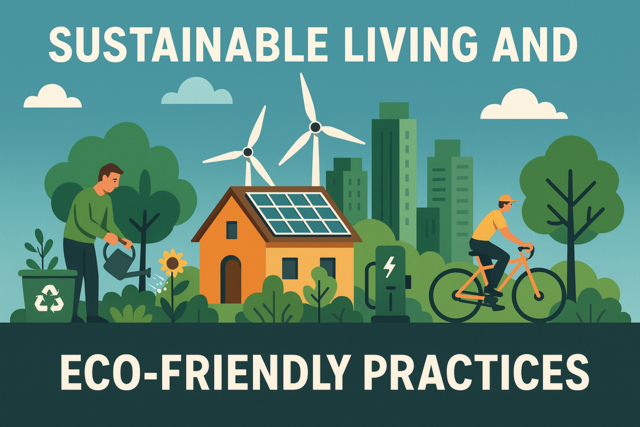Online Class: Sibling Rivalry and Narcissism — Struggles in Dysfunctional Families

-
15Lessons
-
22Exams &
Assignments -
6Hours
average time -
0.6CEUs
Course Description
Imagine untying the most convoluted knot you can think of, only to find a glowing thread buried within--a thread leading you to a future of self-realization and harmony. That's exactly what enrolling in our "Sibling Rivalry and Narcissism: Struggles in Dysfunctional Families" course feels like. It's an exploration, a revelation, and above all, a personal journey in understanding the complexities of your family dynamics.
Many struggle silently, ensnared by the intricate webs spun in their family homes. Their voices are muffled, their experiences deemed trivial by external eyes, yet the pain is real and profound. You're not alone, and the quest for understanding is a noble one. Throughout this course, you will be greeted by a community of learners and experts who have walked similar paths. Here, your personal stories are honored, your struggles acknowledged, and your growth championed.
As you delve deep into the dynamics of sibling rivalry, you'll discover that these struggles stem from both nature and nurture. Genetics may lay the ground, yet the family environment etches its signature into those relationships. Each module peels back a layer of your family's past, revealing influences you might have sensed but never fully understood until now. This knowledge is not just information; it's power--the kind of power that lights the way to transformation.
In families shadowed by narcissistic behaviors, roles get cast without audition--cast by well-meaning or perhaps unaware hands. Children often find themselves involuntarily participating in a drama not of their own creation. We guide you through these roles, unpacking the psychological complexities and unveiling opportunities for personal empowerment. Our course offers a unique lens to view these dynamics, fostering revelations that lead to healing and stronger, healthier relationships.
Birth order, favoritism, jealousy, and competition--each sibling thread is explored with compassionate precision, offering insights that redefine your understanding of familial interactions. You'll gain tools to address favoritism's deep impacts and, importantly, learn how to prevent carrying these creases into your own future family dynamics.
Practicality lies at the heart of our course. You'll learn strategies for building empathy and improving communication with your siblings--essential tools that transform old wounds into reservoirs of resilience. You'll be supported in navigating manipulative family scenarios, learning to recognize and resist them.
Visualize a home filled not with rivalry but respect and understanding. Our instructors, compassionate experts in psychology and family therapy, are committed to walking alongside you on this pilgrimage to peace. They bring narratives not only from books and studies but from actual lived experience, offering a relatable and inspiring learning environment.
In understanding the role of extended family and setting healthy boundaries, you'll craft a narrative for your life that aligns with your values. Graduating from this course arms you with more than knowledge; it bequeaths you the wisdom to rewrite family scripts and foster resilience in the generations to come.
Imagine breaking the cycle, not merely for your well-being but for future ties that bind lovingly rather than restrictively. Our course is your map to that future, where the legacy of dysfunction halts at your feet, allowing room for love to grow.
Choosing this course means choosing insight, empathy, and the aspiration for future generations free from the shadows of the past. Are you ready to take the first step toward a more harmonious life? Join us, and let this transformative experience illuminate your path. The journey to understanding and peace begins here, and we can't wait to welcome you to it.
- Business
- Business Ethics Courses
- Harassment Prevention Courses
- Human Resources Certifications
- Management
- Aromatherapy Courses
- Caregiver Courses
- Career Development Courses
- Communications Courses
- Confidence and Self Esteem Courses
- Healing
- Human Anatomy Courses
- Medical Skills
- Health & Medicine
- Nutrition
- Marketing
- Microsoft Office Certification Courses
- Life Coaching Courses
- Self-Improvement
- Small Business Certifications
- Safety
- Writing Improvement
- Business Writing Courses
Course Lessons
Lesson 1. Nature, Nurture, and the Intricacies of Sibling Dynamics
 Review Practice Worksheet: Lesson-1-Activity-28680.pdf
Review Practice Worksheet: Lesson-1-Activity-28680.pdf Lesson discussions: Reasons for Taking this Course
Lesson discussions: Reasons for Taking this Course Complete: Lesson 1 Activity
Complete: Lesson 1 Activity Assessment: Lesson 1 Review Exam
Assessment: Lesson 1 Review Exam
Lesson 2. Unraveling Sibling Roles in Narcissistic Families
 Review Practice Worksheet: Lesson-2-WorkSheet-28683.pdf
Review Practice Worksheet: Lesson-2-WorkSheet-28683.pdf Complete: Lesson 2 Activity
Complete: Lesson 2 Activity Assessment: Lesson 2 Review Exam
Assessment: Lesson 2 Review Exam
Lesson 3. Decoding Narcissism in Family Dynamics
 Review Practice Worksheet: Lesson-3-WorkSheet-28690.pdf
Review Practice Worksheet: Lesson-3-WorkSheet-28690.pdf Assessment: Lesson 3 Review Exam
Assessment: Lesson 3 Review Exam
Lesson 4. Navigating Family Dynamics: The Birth Order Effect
 Review Practice Worksheet: Lesson-4-Downloadable-28696.pdf
Review Practice Worksheet: Lesson-4-Downloadable-28696.pdf Complete: Lesson 4 Activity
Complete: Lesson 4 Activity Assessment: Lesson 4 Review Exam
Assessment: Lesson 4 Review Exam
Lesson 5. Sibling Dynamics in Narcissistic Families: Understanding the Impact and Building Resilience
 Review Practice Worksheet: Lesson-5-Activity-28701.pdf
Review Practice Worksheet: Lesson-5-Activity-28701.pdf Assessment: Lesson 5 Review Exam
Assessment: Lesson 5 Review Exam
Lesson 6. The Historical Roots and Psychological Effects of Favoritism in Families
 Review Practice Worksheet: Lesson-6-StudyGuide-28706.pdf
Review Practice Worksheet: Lesson-6-StudyGuide-28706.pdf Assessment: Lesson 6 Review Exam
Assessment: Lesson 6 Review Exam
Lesson 7. The Roots and Resolutions of Rivalry Within Families
 Review Practice Worksheet: Lesson-7-Downloadable-28712.pdf
Review Practice Worksheet: Lesson-7-Downloadable-28712.pdf Assessment: Lesson 7 Review Exam
Assessment: Lesson 7 Review Exam
Lesson 8. Sibling Communication Essentials
 Review Practice Worksheet: Lesson-8-Downloadable-28715.pdf
Review Practice Worksheet: Lesson-8-Downloadable-28715.pdf Complete: Lesson 8 Activity
Complete: Lesson 8 Activity Assessment: Lesson 8 Review Exam
Assessment: Lesson 8 Review Exam
Lesson 9. From Rivalry to Resilience: The Role of Emotional Intelligence in Sibling Interactions
 Review Practice Worksheet: Lesson-9-Activity-28716.pdf
Review Practice Worksheet: Lesson-9-Activity-28716.pdf Assessment: Lesson 9 Review Exam
Assessment: Lesson 9 Review Exam
Lesson 10. Beyond the Core: The Role of Cousins, Aunts, and Uncles in Sibling Relationships
 Review Practice Worksheet: Lesson-10-HomeWork-28718.pdf
Review Practice Worksheet: Lesson-10-HomeWork-28718.pdf Complete: Lesson 10 Activity
Complete: Lesson 10 Activity Assessment: Lesson 10 Review Exam
Assessment: Lesson 10 Review Exam
Lesson 11. The Role of Emotional Intelligence in Family Healing
 Review Practice Worksheet: Lesson-11-WorkSheet-28720.pdf
Review Practice Worksheet: Lesson-11-WorkSheet-28720.pdf Assessment: Lesson 11 Review Exam
Assessment: Lesson 11 Review Exam
Lesson 12. Boundary Crafting in Challenging Families
 Review Practice Worksheet: Lesson-12-Downloadable-28722.pdf
Review Practice Worksheet: Lesson-12-Downloadable-28722.pdf Assessment: Lesson 12 Review Exam
Assessment: Lesson 12 Review Exam
Lesson 13. Therapeutic Strategies for Sibling Rivalry in Dysfunctional Settings
 Review Practice Worksheet: Lesson-13-Activity-28724.pdf
Review Practice Worksheet: Lesson-13-Activity-28724.pdf Assessment: Lesson 13 Review Exam
Assessment: Lesson 13 Review Exam
Lesson 14. Dysfunction Unraveled
 Review Practice Worksheet: Lesson-14-HomeWork-28726.pdf
Review Practice Worksheet: Lesson-14-HomeWork-28726.pdf Complete: Lesson 14 Activity
Complete: Lesson 14 Activity Assessment: Lesson 14 Review Exam
Assessment: Lesson 14 Review Exam
Lesson 15. Fostering Resilience in Narcissistic Family Environments
 Review Practice Worksheet: Lesson-15-Downloadable-28728.pdf
Review Practice Worksheet: Lesson-15-Downloadable-28728.pdf Lesson discussions: End of Course Poll; Course Comments
Lesson discussions: End of Course Poll; Course Comments Complete: Lesson 15 Activity
Complete: Lesson 15 Activity Assessment: Lesson 15 Review Exam
Assessment: Lesson 15 Review Exam
Learning Outcomes
- Demonstrate understanding of environmental factors, like parental influence, in mitigating or exacerbating sibling rivalry.
- Recognize the influence of genetic predispositions on sibling dynamics and identify traits contributing to rivalry.
- Recognize the distinct emotional and developmental effects of the 'Golden Child,' 'Scapegoat,' and 'Invisible Child' roles.
- Define the psychological impacts of narcissistic parental roles on sibling relationships and identify strategies for healing and empowerment.
- Demonstrate strategies for setting boundaries and fostering resilience in environments affected by parental narcissism.
- Identify and describe the impact of narcissistic traits on sibling dynamics within dysfunctional family settings.
- Analyze and evaluate the impact of cultural and familial environments on the expression of birth order-related traits.
- Identify and describe the distinct personality traits associated with each birth order position, using examples from historical figures.
- Describe how children in narcissistic family systems can identify and articulate their emotional boundaries to promote healthier interpersonal relationships.
- Recognize and employ effective coping mechanisms to manage anxiety and self-esteem issues stemming from a narcissistic family upbringing.
- Analyze the psychological impacts of sibling favoritism and describe effective strategies for addressing its negative effects on family dynamics.
- Demonstrate understanding of the historical and cultural factors influencing favoritism by identifying key examples from ancient to modern societies.
- Demonstrate mastery of lesson content at levels of 70% or higher.
Additional Course Information

- Document Your Lifelong Learning Achievements
- Earn an Official Certificate Documenting Course Hours and CEUs
- Verify Your Certificate with a Unique Serial Number Online
- View and Share Your Certificate Online or Download/Print as PDF
- Display Your Certificate on Your Resume and Promote Your Achievements Using Social Media

Related Courses
-
 5 hours
0.5 CEUs
Understanding Nutrition Labels and Food Choices
+ More Info
5 hours
0.5 CEUs
Understanding Nutrition Labels and Food Choices
+ More Info
-
 4 hours
0.4 CEUs
Home Organization and Decluttering Techniques
+ More Info
4 hours
0.4 CEUs
Home Organization and Decluttering Techniques
+ More Info
-
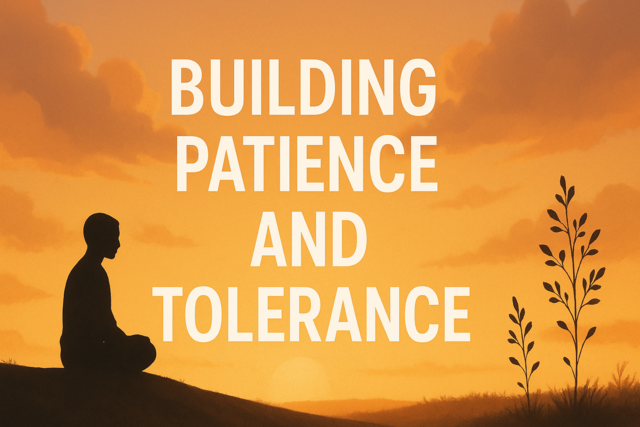 7 hours
0.7 CEUs
Building Patience and Tolerance
+ More Info
7 hours
0.7 CEUs
Building Patience and Tolerance
+ More Info
-
 3 hours
0.3 CEUs
Career Planning and Development
+ More Info
3 hours
0.3 CEUs
Career Planning and Development
+ More Info
-
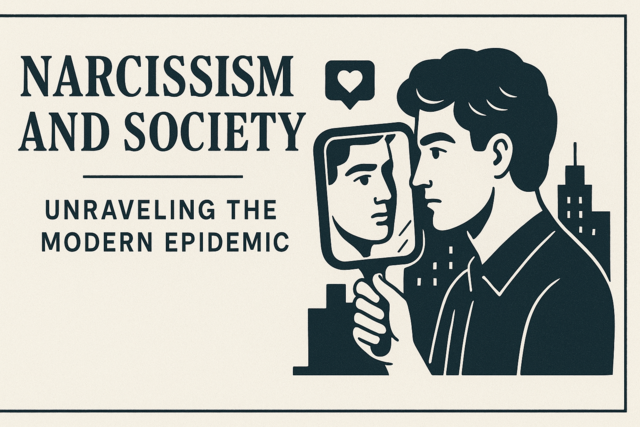 6 hours
0.6 CEUs
Narcissism and Society: Unraveling the Modern Epidemic
+ More Info
6 hours
0.6 CEUs
Narcissism and Society: Unraveling the Modern Epidemic
+ More Info
-
 3 hours
0.3 CEUs
Creating and Maintaining Personal Boundaries
+ More Info
3 hours
0.3 CEUs
Creating and Maintaining Personal Boundaries
+ More Info
-
 7 hours
0.7 CEUs
Travel Planning and Safety Skills
+ More Info
7 hours
0.7 CEUs
Travel Planning and Safety Skills
+ More Info
-
 4 hours
0.4 CEUs
Basic Household Maintenance Skills
+ More Info
4 hours
0.4 CEUs
Basic Household Maintenance Skills
+ More Info
-
 6 hours
0.6 CEUs
Introduction to Minimalist Living
+ More Info
6 hours
0.6 CEUs
Introduction to Minimalist Living
+ More Info
-
 6 hours
0.6 CEUs
Project Management for Personal Projects
+ More Info
6 hours
0.6 CEUs
Project Management for Personal Projects
+ More Info
-
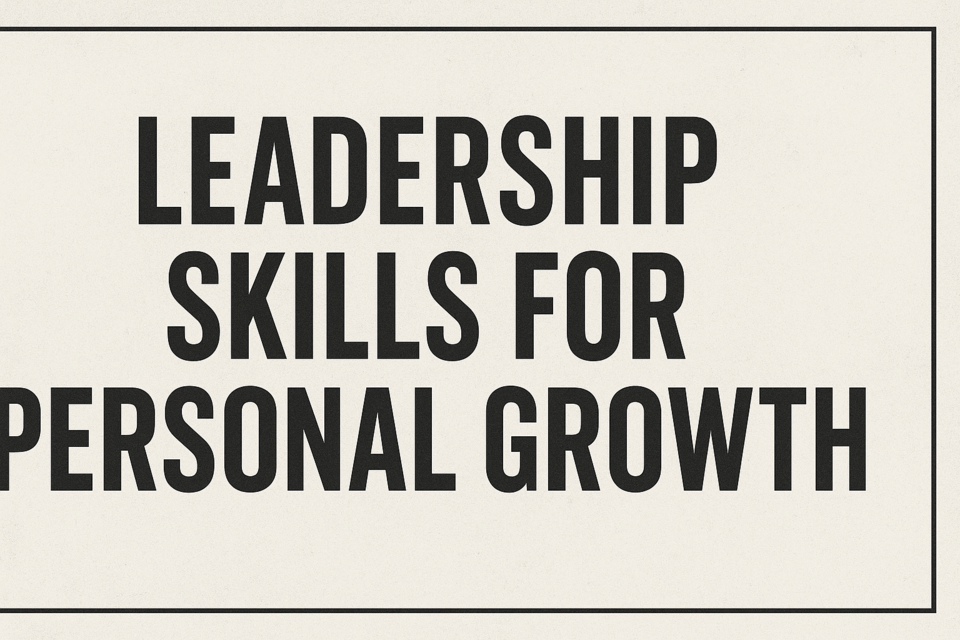 4 hours
0.4 CEUs
Leadership Skills for Personal Growth
+ More Info
4 hours
0.4 CEUs
Leadership Skills for Personal Growth
+ More Info
-
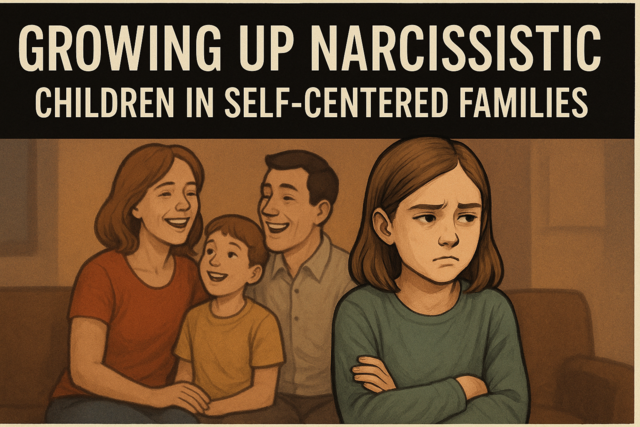 3 hours
0.3 CEUs
Growing Up Narcissistic: Children in Self-Centered Families
+ More Info
3 hours
0.3 CEUs
Growing Up Narcissistic: Children in Self-Centered Families
+ More Info
-
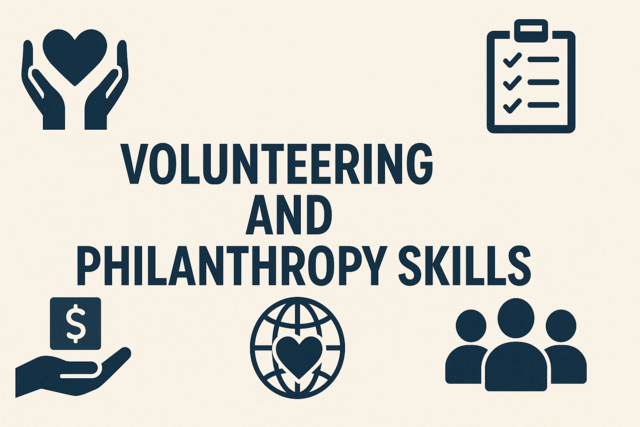 7 hours
0.7 CEUs
Volunteering and Philanthropy Skills
+ More Info
7 hours
0.7 CEUs
Volunteering and Philanthropy Skills
+ More Info
-
 7 hours
0.7 CEUs
Building a Healthy Work Environment
+ More Info
7 hours
0.7 CEUs
Building a Healthy Work Environment
+ More Info
-
 6 hours
0.6 CEUs
Healing from Narcissism: Paths to Recovery and Healthy Dynamics
+ More Info
6 hours
0.6 CEUs
Healing from Narcissism: Paths to Recovery and Healthy Dynamics
+ More Info
-
 6 hours
0.6 CEUs
Creating a Work-Life Balance
+ More Info
6 hours
0.6 CEUs
Creating a Work-Life Balance
+ More Info
-
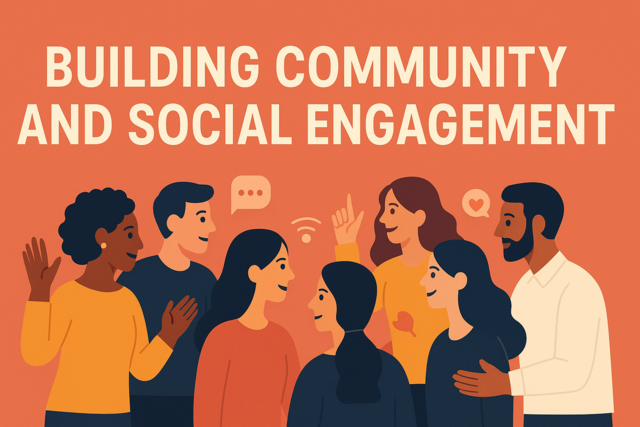 7 hours
0.7 CEUs
Building Community and Social Engagement
+ More Info
7 hours
0.7 CEUs
Building Community and Social Engagement
+ More Info
-
 4 hours
0.4 CEUs
Emergency Preparedness and Survival Skills
+ More Info
4 hours
0.4 CEUs
Emergency Preparedness and Survival Skills
+ More Info
-
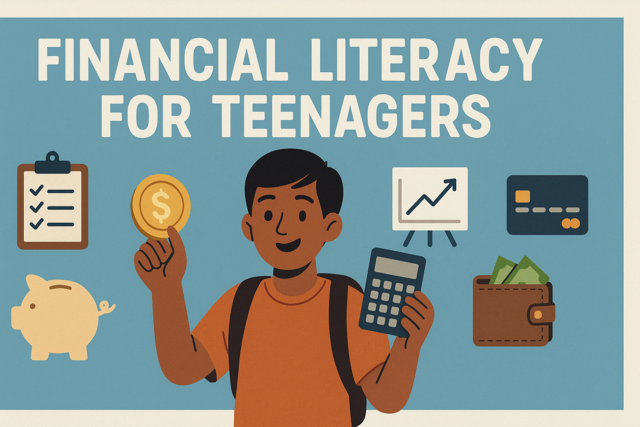 5 hours
0.5 CEUs
Financial Literacy for Teenagers
+ More Info
5 hours
0.5 CEUs
Financial Literacy for Teenagers
+ More Info
-
 7 hours
0.7 CEUs
Self-Care and Wellness Practices
+ More Info
7 hours
0.7 CEUs
Self-Care and Wellness Practices
+ More Info
-
 5 hours
0.5 CEUs
Generational Patterns: How Narcissism Perpetuates Dysfunction
+ More Info
5 hours
0.5 CEUs
Generational Patterns: How Narcissism Perpetuates Dysfunction
+ More Info
-
 5 hours
0.5 CEUs
Developing a Growth Mindset
+ More Info
5 hours
0.5 CEUs
Developing a Growth Mindset
+ More Info
-
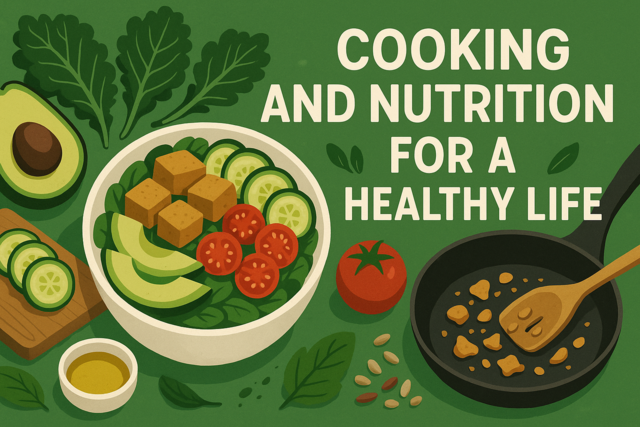 5 hours
0.5 CEUs
Cooking and Nutrition for a Healthy Life
+ More Info
5 hours
0.5 CEUs
Cooking and Nutrition for a Healthy Life
+ More Info
-
 5 hours
0.5 CEUs
Self-Discipline and Motivation Strategies
+ More Info
5 hours
0.5 CEUs
Self-Discipline and Motivation Strategies
+ More Info
-
 3 hours
0.3 CEUs
Budgeting and Financial Planning
+ More Info
3 hours
0.3 CEUs
Budgeting and Financial Planning
+ More Info




